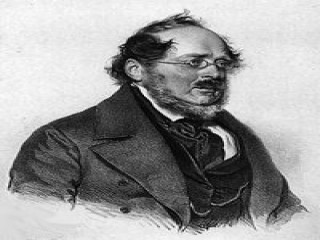
Friedrich List biography
Date of birth : 1789-08-06
Date of death : 1846-11-30
Birthplace : Reutlingen, Württemberg
Nationality : German
Category : Historian personalities
Last modified : 2011-05-24
Credited as : Economist, developed National System, Das Zollvereinsblatt (Customs Union Journal)
The German economist Georg Friedrich List originated the historical theory of economic growth.
Friedrich List was born Aug. 6, 1789, in Reutlingen, Wurttemberg. He attended Latin school, worked in his father's tannery, and at age 17 became a civil service clerk, rising to ministerial undersecretary in local government. He attended Tubingen University and in 1817 was appointed professor of political economy. In 1818 he formed an association of merchants in Frankfurt, urging the abolition of customs barriers among the German states. Political opposition led to his university resignation in 1819. He was elected to the Wurttemberg Assembly in 1820 but was expelled in 1822 because of his criticism of the government. To avoid imprisonment he fled the country. On his return to Germany in 1824, he was arrested but released on condition that he emigrate to America.
List farmed near Harrisburg, Pa., and also edited a German newspaper (Der Adler) near Reading. At the suggestion of Charles Ingersoll, a protectionist, he wrote Outlines of American Political Economy (1827), which influenced Congress in its passage of the "Tariff of Abominations" in 1828.
List's success in developing a coal mine near Tamaqua and his building of the Little Schuylkill Railroad in 1831 made him wealthy. Schemes to develop a market abroad for American coal and plans for railroads in Europe took List to France in 1830. His support of Andrew Jackson's election campaign led him to expect appointment in the Hamburg consulate. Although the Senate did not confirm this appointment, he was confirmed to the Leipzig consulate in 1833. In 1837 he helped develop the Leipzig-to-Dresden rail line, one of the first on the Continent. In Paris he wrote his important work The National System of Political Economy (1841).
Various schemes to promote German unity and commercial enterprise engaged List's enormous energies: a postal system, railway extension, and parliamentary government to replace state bureaucracy. In 1843 he edited Das Zollvereinsblatt (Customs Union Journal) to promote his views and also contributed to other journals. In 1844 he went to Austria and Hungary to promote protectionism for native industries. Financial worries, illness, and depression marked his last years. In England in 1846 he was disappointed at not effecting a commercial treaty with Germany. Returning to Kufstein, Austria, he took his own life on Nov. 30, 1846.
List's economic view was characterized by nationalist protectionism. He urged protective tariffs for developing nations with free trade as the ultimate goal at advanced industrial stages. Some observers see his advocacy of German economic and political union, put into effect in Bismarck's time, as a forerunner of the European Common Market.
















